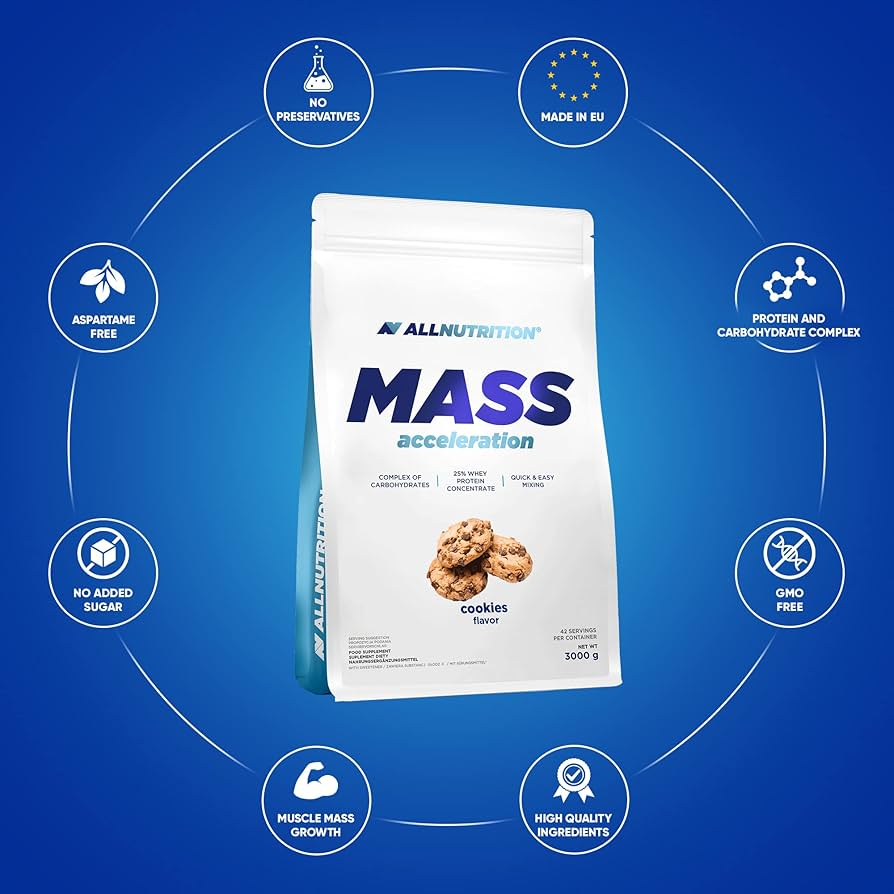10 Ways to Avoid Health Problem


Related products
Ways to Avoid Health Problems
This article provides crucial insights into various aspects of well-being, including balanced nutrition, physical activity, stress management, and quality sleep. Personal hygiene plays a significant role in shaping one's body image and facilitating social interactions. Additionally, regular check-ups and screenings empower individuals to take a proactive approach towards managing their health. In order to mitigate the potential risks associated with dangerous substances, it is imperative to implement protective measures. Including prioritising the utilisation of safety equipment to ensure the well-being of individuals.
Moreover, fostering, and nurturing relationships play a crucial role in maintaining a state of mental and emotional equilibrium. By incorporating these ten fundamental elements, individuals must effectively traverse the path towards achieving optimal health and vitality.
1. Keeping Up a Good Nutritional Routine
To ensure that the human body gets an adequate supply of calories, proteins, minerals, vitamins, and other essential nutrients, as well as a sufficient surplus to sustain it during periods of limited food availability, it is imperative to maintain a balanced diet with a diverse array of foods in appropriate proportions and ratios. To maintain a healthy diet, it is essential to incorporate bioactive phytochemicals, such as dietary fibre and nutraceuticals, which have been shown to benefit human health. An optimal nutritional regimen should consist of carbs contributing to 55-65% of total caloric intake, proteins accounting for 10-12%, and fat comprising 25-35% of the overall caloric content.
Numerous health advantages of a balanced diet
A well-balanced dietary regimen enhances energy levels, optimises bodily functions, fortifies the immune system, and mitigates the risk of weight gain. Furthermore, there are additional commendable advantages that must be considered:
- A balanced diet gives individuals the necessary nutrients to avoid nutritional inadequacies.
- A nutritious diet reduces the risk of developing diabetes, cancer, and heart disease. It helps with the control of diabetes and high blood pressure.
- A personalised diet causes individuals to manage illnesses or diseases more successfully by easing symptoms.
- When eating correctly, individuals feel better, have more power, and handle stress.
- Food plays a significant role in many social and cultural events. It fosters interpersonal relationships in addition to its nutritional advantages.
How to Make One’s Diet More Healthy?
People maintain a healthy diet by changing several aspects, such as increasing their protein consumption and favouring whole grains over processed grains.
Slow Down
In terms of how much people eat and whether or not they gain weight, how quickly someone eats plays a significant role. Studies comparing different eating rates reveal that people who eat rapidly often consume more calories and have a higher body mass index (BMI) than people who eat more slowly. Hormones controlling hunger, satiety, and food intake communicate with the brain every 20 minutes. Eating more slowly is beneficial for the brain to register fullness. According to studies, eating more slowly reduces mealtime caloric intake, which aids in weight control.
Eating slowly improves the capacity to regulate weight by allowing one to chew food more thoroughly, according to a study.
Opting for whole-grain bread
Switching to whole grain bread from traditional refined grain bread is a simple way to enhance one's diet. Refined grains are associated with many health problems. On the other hand, the health benefits of whole grains include a reduced risk of type 2 diabetes, heart disease, and cancer. Whole grains are rich in fibre, B vitamins, iron, magnesium, manganese, and other minerals. Whole grain bread comes in a wide variety, and many have a superior flavour to refined bread. Checking the label is a good idea to ensure that the bread is made entirely from whole grains, not a mix of natural and refined grains. Bread produced from whole grains or nuts is the best.
Making use of Greek yoghurt
Greek yoghurt is a nutritious snack recognised for its richness and creaminess.
Greek yoghurt is strained to remove excess whey, resulting in a product with a more significant fat and protein content than regular yoghurt. Greek yoghurt has almost twice as much protein per serving as conventional yoghurt, up to 10 grams every 3.5 ounces (100 grams). Eating adequate protein helps people feel satisfied for a long time and regulate their appetite. Due to its low-carb and lactose content, Greek yoghurt is excellent for low-carb diets and lactose-sensitive individuals. Greek yoghurt without flavour is preferred to varieties with taste since flavour-enhanced yoghurt typically includes more sugar and fewer beneficial elements.
More Protein Acquisition
Protein is widely recognised for its satiety-inducing qualities and for helping to maintain muscular mass. Studies show that, particularly in obese individuals, a high-protein meal lowers ghrelin levels more effectively than a high-carb one. By helping to maintain muscle mass and slightly increasing daily calorie expenditure, protein consumption helps to support weight reduction. Protein sources should be added to every meal and snack to extend satiety, reduce cravings, and control food intake. Examples of appropriate authorities include dairy products, almonds, peanut butter, eggs, beans, and lean meats.
Stay hydrated
For general health, it is crucial to consume adequate water. Drinking water aids weight reduction and maintenance by increasing daily calorie expenditure. Before meals, drinking water has been linked to reduced appetite and subsequent food intake. Drinking water instead of other drinks dramatically reduces calorie and sugar consumption, enhancing the quality of the diet. Regular water drinking be linked to lower calorie intake from drinks and improved eating habits.
Using vitamin D and omega-3 supplements
Globally, there are about 1 billion cases of vitamin D insufficiency. Vitamin D, a fat-soluble vitamin, is necessary for strong bones and a robust immune system. Vitamin D receptors are present in every cell in the body, highlighting how crucial it is. Not many meals include vitamin D, but fatty fish is typically the most common source.
Omega-3 fatty acids, primarily found in fatty fish, are a further essential but frequently insufficient nutrient. These acids carry out several essential body functions, such as lowering inflammation, protecting cardiovascular health, and fostering normal brain function. The typical Western diet frequently contains high omega-6 fatty acids, which cause inflammation and are associated with several chronic disorders. Omega-3 fatty acids reduce this inflammation and promote physiological harmony.
2. Exercise regularly
Regular exercise improves general health, physical fitness, and quality of life. Aside from that, it reduces the risk of long-term diseases like dementia, type 2 diabetes, heart disease, numerous cancers, obesity, diabetes type 2, diabetes type 2, depression, and anxiety.
Benefits of regular exercise
- Regular physical activity is crucial in facilitating weight management by aiding individuals in sustaining their weight loss achievements or mitigating excessive weight gain. Engaging in physical exercise results in the expenditure of calories by the body. Increased intensity of physical activity results in higher caloric expenditure. Consistent attendance at the gym is paramount; nevertheless, individuals need not be unduly concerned if they do not allocate a significant amount of time to engage in regular physical activity. Engaging in any level of physical activity is preferable to a complete absence of exercise. To fully benefit from training, enhancing the degree of physical activity during the day is necessary. Opting for stair usage instead of a lift or expediting the cleaning process is advantageous.
- Is the individual displaying concern regarding the presence of heart disease? Are they interested in lowering their blood pressure? Physical activity has been shown to increase levels of high-density lipoprotein (HDL), commonly referred to as "good" cholesterol, while simultaneously reducing levels of triglycerides, a form of "bad" cholesterol. These effects have been observed irrespective of an individual's present body weight. The dual advantage maintains the proper functioning of blood vessels and the heart while concurrently mitigating the likelihood of developing cardiovascular ailments.
Regular exercise helps to prevent or manage a wide range of health problems and difficulties, including:
- Stroke.
- A high blood pressure level.
- Depression.
- Anxiety.
- Arthritis.
Additionally, it promotes cognitive growth and reduces the likelihood of passing away for any reason:
- If a person wants emotional assistance or needs to unwind after a difficult day, a brisk walk or gym workout is helpful. After exercising, which releases various brain chemicals, a person feels happier, more at ease, and less anxious. Regular exercise boosts self-confidence and self-esteem by helping them feel better about their appearance and themselves.
- If the person feels weary from grocery shopping or household chores, regular exercise helps them gain muscle strength and endurance. Exercise increases the effectiveness of the circulatory system and helps the body's tissues receive oxygen and nutrients.
- If the person is having trouble getting to sleep, exercising frequently helps them sleep better, deeper, and awake earlier. Remember, avoiding working out just before bed is essential if they do not want to be too sharp to sleep.
- If the person is too exhausted or unfit to enjoy close physical contact, regular exercise improves their sex life by boosting their vitality and self-confidence. There is more to it than that, though. Women's arousal rises with regular exercise. Additionally, men with erectile dysfunction are less likely to exercise frequently than non-exercising men.
- Regular exercise helps prevent chronic diseases and enhance the quality of life for people with them. A balanced program must include exercise that raises the heart rate builds muscle and keeps joints mobile. Any action that increases heart rate is considered an aerobic exercise. It helps with heart health, stamina, and weight management. Building muscle strength by engaging in strength training, such as weightlifting, is possible. Performing daily duties must get easier following strength training. It reduces illness-related impairments in muscle strength and maintains joint stability. One flexibility exercise, stretching, aids in keeping joints mobile so they continue to perform as intended. Fall prevention exercises lessen the likelihood of falling. Exercise requires good balance, especially for older people and people with mobility challenges. Balance-enhancing exercises prevent falls and the damage they cause. Tai chi, walking backwards, and practising standing on one leg are exercises that improve balance.
What does one do to incorporate fitness into their everyday schedule?
- Increase the dynamism of regular work. Use the stairs instead of the lift. Visit a colleague's office down the hall rather than sending an email. Park further away from the destination.
- Allocate quality time engaging in activities with cherished individuals. Individuals who engage in physical activity with a companion derive greater pleasure from the experience. Individuals must organise social events that incorporate physical activity strategically. One potential action to be contemplated is becoming a fitness group or team member, such as a volleyball team, hiking club, or dance class.
- Stay updated on the progress. Utilising a fitness tracker or maintaining an activity log facilitates the establishment of objectives and sustains motivation.
- Make working out more pleasurable. Try to listen to music or watch TV while exercising. Change the routine as well; boredom is likely if only one type of exercise is done. Attempt a range of activities.
3. Get Enough Sleep
To maintain good health and well-being, getting enough sleep is imperative. Like exercise and a healthy diet, sleep helps prevent several health issues like depression and heart disease. Modern living does not frequently underline the importance of obtaining adequate sleep in the United Kingdom and many other countries. However, it is imperative that individuals continually make an effort to get enough sleep.
Several benefits of getting adequate sleep include better memory and productivity. Researchers examined sleep disruption's immediate and long-term impacts in a 2017 study. They observed how, among other things, sleep impacted memory. Research suggests sleep disturbances affect the formation and processing of memories. Sleep disruption significantly affects a person's ability to perform in various scenarios, such as the workplace, school, and other circumstances. This includes mental focus, emotional response, moral judgment, and decision-making. Unrest in the sleep cycle affects stress hormones, which influence cognition. A 2015 study published in the Journal of Child Psychology and Psychiatry added to the knowledge about the link between kids' sleep patterns, behaviour, and academic achievement.
Additionally, getting a good night's sleep has been associated with more significant calorie management. There is proof that adequate sleep helps with calorie control. For instance, a 2022 study found that overweight people who increased their sleep time by an average of 1.2 hours consumed roughly 270 fewer calories than a control group. This study suggests that improving and maintaining a healthy sleep duration helps with weight loss and obesity prevention.
Additionally, adequate rest helps reduce the risk of developing heart disease. The body better controls blood pressure when it gets enough sleep each night, according to the Centres for Disease Control and Prevention (CDC). Heart disease is known to be at risk due to high blood pressure. In addition to helping to enhance overall heart health, a good night's sleep lowers the chance of developing sleep-related conditions, including sleep apnoea.
Getting enough sleep is associated with the body's capacity to combat inflammation. In a 2019 study that concentrated specifically on women, researchers discovered a clear positive correlation between increased sleep irregularity and higher levels of inflammation. The study suggests that irregular sleep patterns, such as erratic bedtimes or varying wake-up times across the night, reduce the body's ability to manage inflammation effectively.
Tips for improving sleep
To improve the quality of their sleep, a person must do the following:
- Avoid sleeping in after a good night's sleep.
- Getting up, moving more frequently during the day, and spending more time outside.
- Getting in shape, seeking therapy, or employing other stress-reduction techniques.
4. Learn healthy strategies to handle stress
People experience a wide range of negative impacts from stress, which does have varying degrees of adverse effects on their physical and emotional health. According to research, pressure occasionally enhances performance and focus in particular situations. These benefits of stress, nevertheless, are frequently sporadic. Numerous illnesses, including heart disease and psychological issues like anxiety and depression, have been linked to long-term or extreme stress. When someone is in situations that make them feel scared or anxious, their body initiates a stress reaction. This physiological response causes several physical symptoms, changed behavioural patterns, and more intense emotional experiences. Stressed individuals experience emotional upheaval, worry, problems sleeping, and irregular eating patterns. Some effective methods for reducing stress include:
- Take breaks from watching, reading, or listening to news stories all the time, especially those that are posted on social media. While it is essential to be educated, being exposed to terrible occurrences frequently is stressful. Consider pausing phone, TV, and internet use and limiting daily news consumption to a few times.
- Put health first by prioritising self-care. This calls for eating healthful foods, engaging in regular physical activity, getting appropriate rest, and giving oneself a break when stressed.
- Include physical wellness-enhancing exercises like stretching, deep breathing techniques, and meditation.
- Continually consume healthful, well-balanced items in the diet.
- To support mental and physical health, exercise frequently.
- For body and mind to feel refreshed, get enough sleep.
- Do not overindulge in drugs, alcohol, or other substances because they exacerbate stress.
- Keep up with the routine preventative measures, such as immunisations and cancer screenings, that healthcare specialists advise.
- If someone is 18 or older, consider getting a booster shot after receiving COVID-19 immunisation as soon as feasible.
- Make time for relaxation by engaging in enjoyable activities.
- Discuss concerns and emotions with trustworthy people. Talking about problems and coping techniques with parents, friends, therapists, doctors, or pastors is helpful.
- For more assistance, contact local or religious institutions.
- Avoid using drugs and alcohol as coping mechanisms since they worsen present stress and cause new problems.
- If stress persists or suicidal thoughts appear, speak with professionals like psychologists, social workers, or professional counsellors. It is crucial to request assistance when one requires it.
5. Use safety equipment when necessary
Personal protective equipment (often called "PPE") encompasses a range of garments and apparatus specifically engineered to mitigate the risk of encountering hazardous substances or circumstances that lead to significant occupational ailments and physical harm. The injuries and illnesses arise due to individuals being subjected to various occupational risks, such as chemical, radioactive, biological, electrical, mechanical, or other forms of exposure. Personal protection equipment (PPE) encompasses a range of essential items, such as gloves, safety goggles, footwear, earplugs or earmuffs, hard helmets, respirators, coveralls, vests, and full-body suits.
People use personal protective equipment (PPE) to increase workplace safety. These include:
Due to their design to shield the head from falling objects, hard helmets are a crucial type of head protection. Some hard helmets include supplementary features like face shields or earmuffs for added security. Ensure the hard helmet fits tightly when selecting one for a particular work environment.
Workers must consider protecting their faces and eyes. Safety goggles are an option for eye protection when working in hot environments or with materials like metal or wood, as well as full-face shields to guard against flying objects.
Hearing protection must be considered to prevent hearing loss in workers exposed to noisy surroundings. Earmuffs and earplugs are the two most common choices, with earmuffs being more effective at reducing low-frequency sounds than earplugs are at reducing high-frequency noises. Selecting the appropriate protection requires taking into account the unique noise environment.
Personal protective equipment (PPE), which includes safety gloves, is essential for jobs that lead to hand or skin injuries such as burns, exposure to harmful chemicals, cuts, fractures, or amputations.
Correctly ensures worker health and safety
All employees involved in work-related activities must have a secure workplace, which employers legally must provide and maintain. They must accomplish this, for instance, by implementing appropriate health and safety procedures at work and setting fair requirements to meet their safety goals. In this regard, health and safety training is equally important, and employers offer their staff a range of training opportunities.
Some crucial training courses include abrasive wheels, hand-arm vibration, lifting operations, height safety, and other relevant topics. Health and safety are essential to employment since they maintain everyone's safety. This is accurate when employing the machinery, tools, and equipment. Employers are accountable for the safety measures at their workplace to protect their staff from health risks when using equipment at work and to ensure that they are competent to operate safely.
6. Get frequent medical checkups
Doctors advise their patients to get regular checks, so they must monitor their health. They are emphasising the importance of prevention to lower the number of individuals who require medical attention or surgery. Regular checkups help to detect any health issues before they worsen. Regular checkups allow the doctor to spot illnesses or abnormalities early on. Early diagnosis offers the best chance of receiving the proper treatment quickly and avoiding issues. By obtaining the necessary medical services, tests, and treatments, one makes substantial efforts to live a longer, healthier life.
A generation ago, people would only visit the doctor if they were ill or nearing death. Preventive healthcare is now a given since people are more knowledgeable and in charge of their health. They are proactively seeking medical advice to lead a healthy lifestyle. They aim to lower their risk of contracting various disorders or illnesses by maintaining a nutritious diet, weight, and physical activity.
Advantages of regular complete health examinations
Regular, thorough health checks have several advantages. They mainly contribute to disease prevention by monitoring a person's health and identifying changes in the body. This is crucial for identifying common ailments like the flu the common cold, and severe problems like high blood pressure that are not obvious during routine activities. Second, it is critical to identify life-threatening diseases as soon as possible. Early sickness discovery raises the chance of a full recovery. Regular checkups prevent the onset of ailments that ultimately prove fatal. Type 2 diabetes, heart disease, and cancer all have significantly higher survival rates when detected early.
Thirdly, regular exams increase the likelihood of a diagnosis and a course of treatment. They help to reduce risk factors for chronic illnesses like heart disease and stroke by decreasing blood pressure and cholesterol levels through medication and dietary changes. By detecting and treating conditions like diabetes and hypertension, it enhances overall health. Fourth, it is critical to maintain a close check on the circumstances. Regular health monitoring makes it simpler to identify unhealthy lifestyle choices like smoking or excessive alcohol consumption. Diabetes and high blood pressure screenings help determine the efficacy of treatment plans, allowing for the proper adjustments to diet or medicine.
Lastly, routine medical checks allow people to live longer, healthier lives. The individual's medical history significantly impacts the chance of developing a specific ailment. A thorough physical examination helps one spot health concerns for conditions including high blood pressure, diabetes, and heart disease. Identifying these risks early on and successfully controlling them does prevent them from developing into severe infections in later life. Every time patients visit a doctor, they leave with knowledge about maintaining their health and making any necessary lifestyle changes, enabling them to take better care of themselves and live longer.
Preparing for a checkup
The following advice must help one prepare for a physical examination:
- Before seeing a new doctor, gather all relevant medical information, such as insurance cards, prior records, and immunisation history. One must bring these to the appointment. If the patient's vaccination history is unknown, the doctor conducts blood testing to check for antibodies in the blood. This is a titer test for antibodies.
- If the patient has seen a doctor, note any modifications to their surgical and medical histories.
- Ensure the medication list is current and contains all vitamins, supplements, over-the-counter medications, and herbal medications being taken.
- After the prior visit, note any new symptoms, allergies, or adverse drug responses.
7. Get plenty of water in your system
The average person needs four to six glasses of plain water each day. One is surprised to learn that everyone consumes different amounts of water. The recommended four to six cups varies depending on how much water a person receives from various meals and beverages and their usual diet. Additionally, several health conditions, medications, degree of activity, and environmental temperature impact the total quantity of water drank daily. Unfortunately, many people do not drink enough, especially senior people.
Here are a few benefits of drinking adequate water for health:
If a person stays hydrated, their physical performance improves. This is essential while engaging in vigorous exercise or during hot weather. Dehydration is evident if a person loses even 2% of the water in their body. However, it is typical for athletes to lose between 6 and 10 per cent of their water weight via sweat. This leads to changes in how the body regulates warmth, diminished motivation, and increased exhaustion. Therefore, exercising feels much more complex, both physically and mentally. Drinking adequate water has been demonstrated to prevent this and even mitigate the oxidative damage from vigorous exertion. This is hardly surprising, considering water makes up around 80% of muscle. If a person tends to sweat a lot when exercising, staying hydrated enables him to work out as hard as possible.
Dehydration causes headaches and migraines in specific individuals. A headache is one of the most common symptoms of dehydration, according to a study. Additionally, some studies have shown that those who often get headaches benefit from drinking water to lessen their frequency. According to a survey of 102 males, consuming an additional 50.7 ounces (1.5 litres) of water per day considerably reduced the Migraine-Specific Quality of Life scale, which gauges how severe migraine symptoms are. In addition, 47% of the men who consumed more water reported relief from headaches, as opposed to just 25% of the men in the control group. The lack of high-quality studies has led experts to conclude that further research is needed to show how increasing water helps decrease headache frequency and improve symptoms. However, not all studies support this conclusion.
Urinary systems are where urinary stones, a painful mineral crystal cluster, grow. The most common kind of stones are kidney stones, which form in the kidneys. There is not much evidence to suggest that those who have previously experienced kidney stones avoid them in the future by drinking water. An increase in fluid intake causes the kidneys to produce more urine. Mineral concentrations are thus lower and less likely to crystallise and aggregate. Water helps to stop the onset of stones, although further research is required to prove this.
Alcohol use often results in unpleasant aftereffects known as hangovers. Alcohol has a diuretic effect, which results in more significant water loss than water intake. Dehydration arises from this. Dehydration creates symptoms like thirst, fatigue, headaches, and dry mouth, even if it is not the leading cause of hangovers. One of the best ways to decrease hangovers is to drink a glass of water between drinks and at least one big glass before bed.
8. Maintain clean and healthy routines
Teenagers need help prioritising a balanced diet and an active lifestyle in today's fast-paced environment. However, by establishing intelligent practises early in life, people ensure lifetime good health and social confidence. Good hygiene is crucial. One individual must maintain their bodily hygiene and wellness as they approach adulthood. In addition to keeping one healthy, maintaining proper cleanliness promotes a positive body image, which benefits social interactions and how others see one.
Types of Personal Hygiene
The list below is a great place to start if the person wants to build a personal hygiene routine:
Maintaining healthy teeth is only one aspect of adequate dental hygiene. Gum disease, cavities, and bad breath are just a few of the issues an excellent dental hygiene routine helps prevent.
The human body contains millions of millions of sweat glands. The breakdown of sweat by microorganisms causes body smell. Body washing helps to prevent skin irritation and eliminate the germs that cause body smell. One keeps a tidy, presentable appearance by washing their hair to remove grease.
Regular hand washing is one of the best ways to avoid spreading infectious diseases.
The Centres for Disease Control and Prevention (CDC) recommend hand-washing occasionally:
- Food preparation before, during, and after a meal
- Before a meal
- Caring for anyone who is vomiting or experiencing diarrhoea before and after
- Before and following the treatment of a cut or wound
- After changing diapers or tidying up a child who has urinated
- following a cough, sneeze, or nose blow
- After coming into contact with garbage, dirty objects or surfaces.
- After interacting with any animals or animal-related goods, including food
- Nails
- Fingernails spread bacteria in addition to collecting dirt and microbes. Since dirt and bacteria more easily collect beneath longer nails, keeping the nails short helps reduce the risk of contracting an infection.
If one wants to live a healthy lifestyle, focus on establishing the following behaviours:
Give up smoking, alcohol, and other narcotics.The majority of people are naturally aware that these chemicals are harmful to their health. Toxins from drugs, alcohol, and cigarettes harm the body and mental health. Worst of all, these medicines are addictive and cause various problems in the personal life.
Emphasise NutritionWhat a person eats significantly affects health because foods are harmful or beneficial. Focusing on meals that give the nutrients a person needs is helpful when considering what one eats. Food serves as fuel, and the body needs many vitamins, fibre, carbohydrates, and protein to operate at its best. The foods that give the body the most nutrients it requires include fruits and vegetables, lean protein, whole grains, legumes, and healthy plant-based fats. While maintaining a healthy diet is always tricky, ensuring the body gets the nutrients it needs helps improve health.

Many people lead inactive lives due to their employment or busy schedules, despite our bodies requiring regular physical activity to sustain good health. Since most of the day sitting down harms health, try incorporating as much movement into the routine as possible. This is as easy as walking or riding a bike to work to get some exercise.
One must try to fit in some cardio, strengthening, and flexibility workouts to keep health at its peak. Yoga, hiking, swimming, biking, jogging, and other fantastic forms of exercise all help a person stay in shape. Try to find something one enjoys doing to make exercising feel less like a chore and more like something one looks forward to.
Manage Stress Levels and SleepMany people are unaware of stress’s potential adverse effects on mental and emotional well-being. Setting aside time daily to practise a stress-reduction technique like yoga, deep breathing, or mindfulness is perfect for health. Finding stress-reduction techniques that work for one is crucial because stress builds up over time.
One has improved sleep by reducing stress, which is essential for health. Many people forego sleep to accomplish more during the day, significantly affecting their health. Get at least eight hours of sleep per night, and maintain a regular sleep schedule that doesn't change considerably.
Maintain RelationshipsPeople frequently ignore the importance of interpersonal relationships in feeling rooted, at peace, and in our bodies. Maintaining and improving connections is one of the most important aspects of good mental health. Maintaining contact with partner, family, close friends, and coworkers are beneficial to prevent feeling alone and overwhelmed.
One relieves tension and prevents undesirable feelings that impair health by conversing with friends, making jokes, and expressing innermost ideas and feelings. If there are relationship issues, try to resolve them to make life more tranquil. Having a network of people behind one help uphold positive attitudes and encourage healthy behaviours.
9. Take preventative measures
Take preventive measures to avoid health issues. Some people need help to heed instructions on how to stay healthy and prevent disease. The suggestions for what to eat or avoid, how frequently to exercise, how much sleep is necessary, and other lifestyle decisions are constantly changing. In addition, advice comes from various sources, including medical groups.However, the fundamentals of sickness prevention are relatively straightforward. A reliable source, the U.K. Preventive Services Task Force (UKPSTF), developed its guidelines for maintaining good health after reviewing the scientific literature to determine the best cures, diagnostics, and lifestyle advice.
Everyone does seven things: lead a healthy lifestyle, prevent disease, increase life expectancy, and improve general physical, mental, and emotional wellness, according to the UKPSTF. There is undoubtedly room for improvement in each one, even though some people already practice some or even all of them.
- Health tests for both men and women search for ailments before symptoms appear. Early detection of diseases like cancer substantially impacts treatment and perhaps even life expectancy. Although MyHealthFinder.gov is a trustworthy source for this information, healthcare professionals typically advise patients on the tests they must take and when. On this page, the UKPSTF, the CDC, and the Health Resources and Services Administration (HRSA) offer the most recent recommendations for health screenings based on a person's age and sexual orientation.
- Smoking shortens a person's life and lowers their quality of life. It is the primary preventable cause of death in the U.K. and the root of several other diseases. Stopping smoking is crucial for a smoker's health. The USPSTF urges healthcare professionals to suggest FDA-approved smoking cessation medications to patients who are not pregnant and to counsel them to stop smoking.
- If a person is overweight or obese, they prevent sickness or treat existing conditions (such as diabetes, arthritis, or high blood pressure) by losing weight. Even a slight weight loss of between 5% and 10% has beneficial consequences. One cuts hundreds of calories daily by choosing fresh fruit instead of processed foods and avoiding sodas and other sugary foods, making more room on the plate for fibre, vitamins, and minerals.
- While maintaining a heart-healthy diet and regular exercise are the best ways to prevent illness, a doctor suggests using preventative medications. A statin is recommended if a person has high cholesterol diabetes, is older than 40, or has additional risk factors. Additionally, blood pressure medicines are an option. It used to be standard practice for people between the ages of 50 and 59 to take a daily low-dose aspirin, but recent research has caused a change in thinking regarding people who have a low risk of heart disease or a higher risk of bleeding.
10. Avoid Harmful Substances
Numerous substances created or used at work are hazardous to one's health. In addition to biological agents like bacteria, viruses, or other germs that infect people or animals or cause an allergic reaction or dangerous effects, these include all varieties of chemicals (solid, liquid, gaseous, and nanoparticles). Another illustration of a biological risk is the spread of diseases among humans (such as HIV, Hepatitis, influenza, etc.) or between animals and people (such as malaria, dengue fever, etc.). Inhalation of dust, gases, or fumes, contact with liquids, gels, or powders on the skin or mucous membranes, and, in some circumstances, unintentional ingestion are just a few of the ways that these agents or chemicals spread or be transmitted. Animal stings, bites, or faeces mistakenly inject or disseminate some substances. Many substances contain dangerous agents or substances, including paints and cleaning products, water, wheat or other dust, solder fumes, air conditioning units, blood, and waste. Health issues caused by certain chemicals or compounds used or created at work are preventable. While some substances or chemicals are unhealthy when misused, this rarely happens.
Certain medications or factors induce asthma and other diseases, such as cancer. Many causes skin damage, while others cause significant harm to the lungs or other organs. The outcome is immediate, such as light-headedness or itchy eyes, or it develops gradually over several hours or days, such as in the case of bio-contamination, or it takes a long time to appear, such as lung disease. Many long-term or chronic effects are permanent once they start to show. Employers must take the necessary precautions to reduce worker exposure to toxins or other hazardous substances, including biological and chemical ones. This entails identifying the potentially harmful agents or substances that are present, used, or produced at work, figuring out how workers are exposed to them and are harmed, evaluating the efficacy of the preventative measures already in place, disseminating information, instruction, and training, and, as needed, offering health surveillance.
To mitigate chemical hazards, laboratory personnel should adopt measures to reduce their exposure. This entails,
- When feasible, the use of less hazardous substances in experimental procedures.
- It is vital to consistently employ the most minimal amount of chemical substance in all experimental procedures, considering the utilisation of micro-scale studies and activities.
- Employing appropriate engineering controls and personal protective equipment (PPE) to effectively mitigate chemical exposures across several entry pathways, including inhalation, ingestion, skin and ocular absorption, and injection.
- The appropriate personal protective equipment (PPE) should be carefully chosen and subjected to frequent inspections to identify any signs of contamination, leaks, cracks, or holes.
- With a specific focus on gloves, It is recommended to refrain from pipetting or using oral suction methods.
- It is advisable to refrain from directly smelling or tasting chemicals and, instead, employ the technique of fanning chemical containers away from the face to minimise the inhalation of substantial amounts of chemical vapours, particularly when attempting to discern the aroma of a given chemical.
- It is imperative to acknowledge the potential risks associated with chemical exposure, especially in cases where substances are deemed to have no recognised substantial hazards.
- Planning experiments in advance is crucial for identifying potential risks and determining the precise steps required to prevent exposure to any chemicals involved. Additionally, proper positioning of equipment and doing dry runs are essential aspects of experiment organisation.
- It is imperative to seek prior authorisation from a supervisor and implement additional safety measures when handling substances that are deemed highly hazardous.
What is a Health Problem?
The term "health" encompasses a condition characterised by comprehensive emotional, mental, and physical well-being. The primary purpose of healthcare is to promote and maintain individuals' well-being throughout several dimensions of life. This implies that being healthy is a tool to facilitate an individual's contribution to broader society rather than being an ultimate objective in and of itself. Adopting a healthful lifestyle allows individuals to live a whole and meaningful existence. In a publication in The Lancet in 2009, researchers defined health as the capacity of an organism to respond and adjust to novel challenges and ailments effectively.
This definition is grounded in the notion that recent decades have witnessed substantial advancements in scientific knowledge, particularly in illness understanding. These advancements encompass comprehending the mechanisms underlying diseases, uncovering novel approaches to impede or halt their progression, and recognising the potential limitations in achieving a complete absence of pathological conditions.
A health problem is a modification in an individual's health or physiological state caused by an acute disease and injury, necessitating diagnostic procedures and medical intervention. Health problems result from various factors, including:
Genetic Elements: DNA fragments are blueprints for protein production, vital to human bodily functions. DNA shifts or modifications yield irregular proteins, leading to numerous genetic issues. Specific ailments stem from these gene alterations. For example, conditions like blood clotting, neurodegenerative disorders, and lipid storage diseases are traced back to genetic deviations.
Nature's Impact: Our surroundings profoundly influence our health state. Persistent or detrimental interactions with environmental elements induce multiple health concerns. Chronic respiratory illnesses, for instance, intensify with polluted air, while overexposure to sun rays causes skin malignancies.
Habitual Decisions: Individual routines and actions significantly determine health outcomes. Detrimental health habits spawn a series of non-infectious illnesses. Sedentary behaviours, for instance, cause weight-related complications and overconsumption of alcoholic beverages provoke hepatic ailments.
Pathogenic Entities: Entities like bacteria, viral agents, and fungal organisms penetrate human systems, triggering ailments. Such maladies spread among individuals, possibly causing extensive health crises. Respiratory infections and viral flu originate from such pathogens.
Psychological Aspects: Mental wellness deeply resonates with one's holistic health status. Afflictions from mental triggers disturb feelings, cognition, and daily activities, undermining life's essence. Ailments like mood dips, pervasive worry syndromes, and mood swing conditions epitomise the repercussions of psychological influences.
Incidental Injuries: Physical or emotional distress emerges from assorted events, encompassing mishaps or aggressive acts. Such incidents inflict bodily harm, emotional turmoil, or both. Vehicle-related head traumas or combat-related stress reactions are instances of such repercussions.
Mystifying Origins: Despite medical advancements, pinpointing the roots of specific health issues proves intricate. Diagnosing and managing such maladies present challenges. Certain conditions like neurodevelopmental variances or persistent energy depletion syndromes remain perplexing.
Different types of Health Problems
In Britain, diverse health challenges emerge, shaped by multiple elements. Diseases that do not spread person-to-person, termed Non-Transmittable Illnesses, typically persist over time. To illustrate, heart ailments contribute to nearly a quarter of all British mortalities. The nation records close to 367,000 cancer cases each year. Diseases of the respiratory system, especially the prevalent chronic lung disorder, touch about 1.2 million inhabitants, and diabetes concerns more than 4 million. Conversely, Transmittable Illnesses originating from pathogens proliferate among the populace. By the autumn of 2021, Britain had noted upwards of 4 million COVID-19 infections, and 2019 saw nearly 4,500 cases of TB.
Emotional health remains a prime area of focus. Disorders impacting the mind, like depressive states, were evident in nearly one-fifth of British individuals above 15 years, and unease conditions bother almost 8% of citizens. Harm-induced incidents, like mishaps, pose another health hurdle. In 2019, road-related incidents in Britain accounted for over 150,000 casualties. Some Britons encounter health adversities from their birth attributed to Inherited Ailments. The genetic ailment, cystic fibrosis, is experienced by more than 10,000 people in Britain. Environmental factors intertwine with health. Issues like asthma, intensified by contaminants, affect a significant portion, with about 5.4 million Brits undergoing treatment. The detrimental impact of pollutants on respiratory conditions highlights the complex nexus of environmental and health dynamics.
What are other ways to avoid health problems?
The following are more ways to avoid health problems:
Prompt Diagnosis
Identifying health irregularities at the outset is a pivotal tactic in preventive medical practices. When ailments get pinpointed during their initial stages, management becomes more straightforward, and the outcomes of treatments are generally more favourable. For context, early detected cancers tend to exhibit improved survival probabilities since therapeutic interventions address the ailment before it escalates or diversifies. Moreover, swift diagnoses alleviate strains on medical infrastructures and markedly cut down the financial demands on individuals and the broader community. Regular screenings and heightened self-awareness — pinpointing novel or atypical signs and promptly consulting medical professionals —be lifesavers.
Benefits of Routine Health Assessments
Routine medical evaluations are essential for upholding and augmenting one's holistic health. Beyond standard healthcare visits, these assessments are thorough analyses prioritising the early recognition and handling of potential health threats. Embodying the saying, "It's better to prevent than to mend," these medical evaluations personify this philosophy.
- Health Tracking: One salient benefit of consistent health assessments is the perpetual observation of one's health trajectory. Analogous to periodic software enhancements that boost its performance, these health insights grant a clearer view of our physical and emotional realms. Over intervals, such health glimpses spotlight incremental variations, like subtle weight fluctuations or mounting blood pressure, enabling preemptive actions.
- Spotting Ailments: Swiftly spotting diseases often equates to superior results within medical practices. Numerous enduring ailments, including diabetes or select cancers, only reveal pronounced symptoms after substantial progression. Routine screenings, embedded within health evaluations, detect such conditions when they are still budding. To illustrate, a rudimentary blood glucose assessment spots a pre-diabetic phase, where glucose levels are heightened but not to the extent of full-blown diabetes. Early spotting of ailments streamlines therapeutic measures and minimises complication risks, fortifying individuals' health trajectories.
- Evaluating Lifestyles: The contemporary era poses myriad challenges linked to lifestyle choices. Sedentary habits, calorie-dense nutrition, and escalated stress quotients are rampant. Practitioners scrutinise these elements during medical evaluations, proffering insights on lurking dangers. Such discussions illuminate detrimental practices, be it indulgence in refined foods, minimal physical exertion, or caffeine overconsumption. Equipped with these revelations, people judiciously modify their habits, bolstering health and warding off disorders like obesity or cardiovascular issues.
- Therapeutic Effectiveness: Routine medical assessments provide added backing for those facing health hurdles. These sessions empower medical experts to gauge the success of extant treatments. Is the allocated medication adeptly moderating hypertension? Has physical therapy enhanced joint flexibility? Based on these insights, medicines are fine-tuned, guaranteeing their potency and pertinence. This cyclic methodology, rooted in perpetual feedback, ensures individuals obtain care that seamlessly dovetails with their dynamic health landscapes.
Routine medical evaluations are not just cursory health boxes ticked annually. They epitomise a forward-thinking health strategy, a bulwark against unforeseeable medical challenges, and a beacon steering individuals toward salubrious choices. Amidst life's complex choreography, perpetually influenced by myriad health determinants, these evaluations certify our synchronised harmony, rejoicing in health and zest.
Personal Medical History
Every individual possesses a distinct health chronicle, moulded by genetic makeup, previous ailments, and therapeutic interventions, among other factors. Often, these chronicles render invaluable hints about prospective health threats. For example, those with familial histories of ailments like cardiac disorders, diabetes, or specific cancer forms face heightened susceptibility to these disorders. Grasping one's health narrative paves the way for tailor-made preventive actions. Upholding and periodically refreshing a detailed health ledger, encapsulating immunisations, prior therapeutic courses, sensitivities, and beyond, becomes paramount. Such compendiums are treasure troves for medical experts, more so during crisis scenarios.
Exposures to Chemicals
Individuals are consistently exposed to various chemicals in our rapidly advancing technological societies. Some of these are harmless, but others are harmful. This continuous exposure, even to minute amounts of toxic chemicals, paves the way for significant health issues. One prominent area of concern is the workplace. Various industries expose their employees to chemicals that are hazardous in the absence of proper protective measures. It is imperative for these workers to undergo regular health checks and for employers to implement stringent safety guidelines to mitigate potential risks. Another area of concern is the household. A myriad of everyday products contains dangerous chemicals if misused. It is essential to use these products as intended and ensure they are stored securely, mainly out of the reach of children. Additionally, environmental pollution in the air and water remains a significant challenge in numerous parts of the world. Individuals must be proactive by staying updated on local ecological risks, using air purifiers, drinking filtered water, and advocating for cleaner environmental policies to protect their health.
What is the importance of Avoiding Health problems?
Steering clear of health issues has multifaceted benefits, spanning individual well-being, societal harmony, and economic growth.
Health is not just the absence of disease; it's an active state of physical, mental, and social well-being. It's about making choices every day that nourish and support your body and mind. Good health is a lifelong journey, and it's never too late to start taking better care of yourself, as emphasised by Dr Sanjay Gupta, a prominent neurosurgeon and medical correspondent.
Individual Health and Happiness
Optimal health paves the way for a contented existence, moving beyond physical fitness to encompass psychological and emotional harmony. There is an increasing focus on mental well-being in Britain, with statistics revealing that around a quarter of the population faces mental health challenges each year. Disorders ranging from anxiety to more critical conditions like significant depression affect daily routines, interpersonal relationships, and overall life satisfaction. Healthy individuals passionately chase their dreams, engage with the community, and build stronger bonds. Moreover, prime health bolsters one's ability to overcome adversities with composure. Conversely, health setbacks lead to social withdrawal, missed opportunities, and relationship tensions. Thus, maintaining health is akin to nurturing a life brimming with happiness, goals, and profound relationships.
Financial Considerations
The financial fallout of health setbacks is deep and varied. Immediate medical costs, encompassing doctor visits, medicines, and hospital stays, financially strain individuals and their families. The British economy grapples with the high costs tied to health concerns. Businesses face the repercussions of employee illnesses, which, based on data from the Office for National Statistics (ONS), lead to financial losses in the billions annually. However, the impact is more than just monetary; there is a dip in workforce efficiency, the need for interim hires, and team disruptions. Healthy employees are more dynamic and driven, adding value to the organisational culture. Conversely, health concerns curtail efficiency, amplify sick leaves, and, over time, dent corporate profitability. From personal financial health to national economic stability, the financial repercussions of health concerns are expansive and profound.
Pressures on Medical Services
Medical facilities, tailored to address the health necessities of citizens, experience tremendous stress due to rising health issues. The National Health Service (NHS), the linchpin of Britain's medical framework, has seen mounting pressures intensified by an older demographic. A notable instance from 2019 indicates that emergency departments saw an increase of 2 million visits compared to the preceding year. These heightened numbers of strain medical resources, potentially leading to extended wait times and overwhelmed medical personnel. Proactive health management, leveraging preventive strategies and early treatment, eases this pressure. Such initiatives guarantee timely medical attention for citizens and preserve the operational efficiency of health institutions, ensuring they remain sturdy and ready for critical situations.
Life Expectancy
Life Expectancy reflects a country's overall health landscape. Unmanaged chronic ailments shorten lifespans. Heart disorders, tumours, and lung diseases are primary mortality causes in Britain. Even though therapeutic techniques have progressed and survival odds for conditions like cancer have improved, prevention is still crucial. Timely identification, lifestyle alterations, and periodic health screenings significantly boost longevity. To illustrate, early-stage cancer detection considerably enhances the chances of survival. Leading a life unencumbered by chronic ailments extends life duration and enriches its quality, promoting a lively, energetic, and rewarding life journey.
Societal and Communal Influence
Health is not solely personal; its effects ripple through families, communities, and the broader societal fabric. Chronic health issues necessitate prolonged caregiving, imposing emotional, physical, and monetary burdens on kin. In Britain, data suggests that roughly 6.5 million individuals assume the role of caregivers for sick or elderly kin. These caregivers frequently balance caregiving with their personal and professional lives, often leading to exhaustion and emotional drain. Beyond the nuclear family, communities support their ailing members, offering compassion, assistance, and resources. The societal structure does waver when a substantial segment faces health challenges. Therefore, proactive health management preserves individual wellness and reinforces the societal ties binding communities.
Economic Vitality and Health
The economic pulse of a nation is closely tied to its citizens' health. Health complications result in missed workdays, reduced job performance, and early retirement. Britain's robust economy is not immune to these repercussions. Every year, health-related absences account for millions of lost workdays, with conditions like bone and joint issues and psychological disorders being the primary reasons. These absences impact not only personal incomes but also organisational output and profitability. A workforce in prime health is more involved, creative, and efficient. Therefore, health investments directly correlate with bolstering economic output, ensuring sustained national economic vigour.

What are the benefits of having good health?
Optimal health offers numerous advantages, impacting all facets of our existence. It is a foundation for a rewarding life, influencing everything from individual successes and societal impacts to financial prudence and emotional equilibrium.
- Boosted Efficiency: Optimal health stands as a pillar for heightened efficiency. People, when they prioritise their wellness, often feel more energised. This vitality becomes a driving force, enabling them to approach everyday chores with more vigour in professional settings, domestic scenarios, or academic arenas. The byproducts of this are enhanced focus and more effective output in endeavours. Over prolonged periods, this efficiency paves the way for professional growth, academic triumphs, and personal development. It highlights the deep connection between wellness and efficiency.
- Extended Life Span: A prominent advantage of optimal well-being is longevity. Embracing practices like eating nutritiously, exercising consistently, and avoiding detrimental habits add precious years to one's existence. These additional years offer more moments to cherish with family, attain milestones, and relish life's diverse joys. It is not just about the length of life but ensuring those years are vibrant and purposeful.
- Decreased Health-Related Costs: Financially, prioritising health leads to considerable savings. Periodic medical evaluations, though crucial, unveil fewer critical health issues if one's well-being is prioritised. This leads to a reduction in medication, therapies, and hospitalisations. Over decades, these financial savings have become significant, allowing allocations for diverse needs and aspirations. It reinforces the belief that proactive health measures are cost-effective and wiser than reactive treatments.
- Mental Well-Being Enhancement: The bond between physical wellness and mental stability is undeniable. A physically fit body, achieved via regular workouts and wholesome nutrition, profoundly affects the psyche. Activities that involve movement have proven to mitigate feelings of melancholy and tension. The regimen associated with a healthy lifestyle offers a sense of order, alleviating emotions of unpredictability or turmoil, which amplifies mental challenges. The feel-good chemicals during workouts serve as mood boosters, emphasising the mutual benefits of movement and mental health.
- Strengthened Defence Mechanism: A fortified immune system is the primary shield against pathogens. Consumption of nutrient-rich food, consistent workouts, and sufficient rest amplify this defence. Consequently, peak health patients are less susceptible to illnesses and recover faster when ailments strike. This robustness ensures minimal life interruptions and a steady commitment to personal and work-related duties.
- Elevated Life Experience: Undoubtedly, wellness amplifies life's quality. It permits engagement in diverse pursuits that otherwise are out of reach. From scaling peaks to exploring ocean depths, from spirited games with young ones to unrestrained dance, wellness pushes boundaries and unveils countless opportunities. Such adventures add layers to existence, infusing it with happiness, cherished recollections, and a renewed gratitude for our surroundings.
- Societal Contributions: Wellness has societal implications. Those in prime health often participate more in societal activities, be it local gatherings, voluntary work, or nurturing profound relationships. Such involvement adds value to their existence and fortifies societal ties. More so, a healthy populace contributes dynamically to their kin, professional arenas, and the community, leading to widespread positive ramifications.
- Mitigated Tension: Modern existence brings its share of stressors which, if not managed, manifest as health concerns. A lifestyle rooted in wellness, encompassing activities like consistent workouts, mindfulness practices, and adequate relaxation, counteract these stressors. Mainly, physical endeavours dissipate accumulated stress, offering mental rejuvenation.
- Brain Advantages: Wellness does not solely benefit physical and mental domains; it fine-tunes cognitive capacities. A lifestyle that emphasises activities promoting heart health links to improved brain functions. This translates to superior memory, heightened focus, and refined analytical skills. As age advances, these advantages offer a safeguard against cognitive deterioration.
- Emotional Balance: A well-maintained physique often correlates with dynamic consistency. A well-fed, rested, and active body more effectively manages hormonal fluctuations affecting emotions. This leads to diminished mood variations, lesser irritability episodes, and an overarching feeling of emotional contentment.
How much sleep is needed each night to be healthy?
Sleep is pivotal in ensuring holistic health deeply connected to physical, cognitive, and emotional well-being. The immediate repercussions of inadequate sleep become evident through symptoms like exhaustion, diminished mental sharpness, mood fluctuations, and prolonged health concerns. The sleep amount and quality differ depending on factors such as age, way of life, and individual preferences. It is globally accepted that regular, high-quality sleep benefits all demographic groups. This discourse explores the suggested sleep hours for various age groups, spotlighting data from the UK.
Sleep Patterns in Infancy
Sleep serves dual purposes for babies – it is both rejuvenating and essential for growth phases. Particularly for those in their earliest months, the sleep rhythm is distinct, characterised by regular interruptions for feeding. Typically, those aged between 0 to 3 months need about 14 to 17 hours of sleep daily. As they approach their first year, the required sleep remains substantial, averaging 12 to 15 hours, including nighttime rest and daytime naps. Data from the UK aligns with these guidelines, with most babies in this age spectrum adhering to these patterns, although individual deviations exist.
Sleep Needs in Early Childhood
The initial childhood years are punctuated with numerous growth landmarks, encompassing speech and mobility development. Children aged 1-2 years usually need a sleep duration spanning 11 to 14 hours. Progressing to 3 to 5 shows a slight dip in sleep needs, with 10 to 13 hours ideal. In the UK context, while many children in this demographic get the requisite sleep, factors such as electronic device usage and inconsistent bedtime schedules occasionally offset the optimal sleep duration.
Sleep in Adolescent Years
The adolescent phase is defined by rapid bodily changes, hormonal shifts, academic demands, and evolving social dynamics. These changes underscore the importance of sleep for teenagers. Ideally, those aged between 14 and 17 years must receive 8 to 10 hours of nightly rest. However, UK-based surveys indicate that a sizable chunk of adolescents needs to meet this guideline, ranging from study pressures and screen engagements to social interactions.
Sleep in Adulthood and Senior Years
For the age group spanning 18 to 64 years, the advised nightly rest ranges between 7 to 9 hours. Regular sleep routines contribute positively to mental acuity, emotional harmony, and holistic vitality. Within the UK, a notable section of the adult populace, particularly those grappling with demanding professions or familial duties, often forgo optimal sleep, resulting in persistent sleep deficits. Transitioning into the later years, 65 and beyond, see the sleep recommendation tapering to 7-8 hours. However, the nature of sleep has evolved, with many seniors encountering more superficial and interrupted sleep patterns. Research from the UK mirrors these tendencies, with many elderly documenting recurrent disturbances during night rest.
Sleep is crucial, often juxtaposed with nutrition and physical activity as vital health pillars. From the fragile infancy to the advanced years of life, the duration and depth of sleep are instrumental in dictating our health trajectory. There is a burgeoning emphasis on recognising sleep's significance in the UK and worldwide, ushering in various drives to foster superior sleep practices and habits. Be it the growth trajectory of an infant, the unique challenges encountered by adolescents, or the health sustenance imperative for older people, the need for sleep remains unwavering. Ensuring adequate sleep is not merely an option; leading a balanced and healthy existence is integral.
What foods should you eat to be healthy?
There remains a clear, unchanging truth: our food choices profoundly shape our health and vitality, navigating through the myriad dietary guidelines available today. "Your health mirrors your diet" encapsulates this notion, highlighting the criticality of well-rounded nutrition for maintaining our physical and mental states. Given the influx of trendy diets and fleeting nutritional concepts, discerning between transient diet crazes and grounded, research-backed dietary guidance becomes crucial.
- Grains in Their Natural Form: Essential grains, such as barley, oats, quinoa, and unpolished rice, combine vital components like fibre, vitamins, and minerals. They are instrumental in curbing chronic ailments, including cardiovascular diseases, diabetes, and specific cancers. Data from the UK's Diet and Nutrition Inspection indicates that merely 13% of the adult populace achieves the suggested grain intake. Integrating these grains into everyday food not only aids digestive processes but ensures lasting energy and aids in cholesterol regulation.
- Verdant Vegetables: Greens, including spinach, kale, Swiss chard, and collard varieties, are treasure troves of vitamins like A, C, E, and K. They are abundant in antioxidants and dietary fibre. Research from the UK's Food Oversight Agency indicates that barely 31% of adults reach the advised five-a-day fruit and veg intake. Emphasising these greens fortifies immunity, enhances bone strength owing to their calcium richness, and stimulates cognitive capabilities.
- Oily Fish Varieties: Fish like salmon, sardines, and mackerel are laden with omega-3 fatty acids. These crucial fats are central to brain functionality, inflammation reduction, and heart disease prevention. The NHS in the UK advocates for a minimum of two fish servings every week, with at least one being of the oily kind. However, data suggests that 27% of UK adults align with this guideline.
- Seeds and Nuts: Varieties like almonds, flaxseeds, chia seeds, and walnuts are nutritional dynamos. They bring indispensable nutrients, including good fats, vitamins, and protein. Consistently integrating seeds and nuts into meals fortifies cardiac health, diminishes specific cancer risks, and assists in managing body weight, given their fulfilling nature. The UK's NHS endorses a daily intake of a modest portion of unsalted nuts as part of a wholesome diet.
- Berry Varieties: Fruits like blueberries, strawberries, and raspberries offer more than palatable experiences. They are dense in vitamins, antioxidants, and fibres. Consuming these elevates cardiac health, sharpens cognitive processes, and proffers anti-inflammatory advantages. However, the UK's Diet and Nutrition Review reveals a concerning trend: fruit intake, including berries, needs to catch up on recommendations for a significant majority.
- Protein from Lean Sources: Lean meat cuts, poultry, tofu, and pulses deliver vital amino acids essential for muscle recovery, immune responses, and growth. While proteins are crucial to feeling whole and aiding weight balance, the predominant protein consumption in the UK aligns with suggested quotas. The emphasis, however, must shift more towards lean and plant-sourced proteins for all-encompassing health benefits.
- Dairy and Its Substitutes: Conventional dairy products, such as cheese, milk, and yoghurt, are primary calcium and vitamin D sources. For those abstaining from animal-based products or those with lactose sensitivities, fortified plant derivatives like soy, oat, and almond milk emerge as alternatives. Such nutrients are cardinal, particularly for youngsters in growth phases and senior citizens.
A diet diverse in nutrients forms the bedrock of holistic health. Even though individual nutritional requisites are varied, the foods above provide a blueprint for dietary excellence. While there has been heightened dietary cognisance in the UK, areas remain demanding focused attention. Through embracing a blend of natural grains, lean protein sources, wholesome fats, and a spectrum of fruits and vegetables, the journey towards prime health becomes more apparent, equipping us to stave off ailments and thrive through life's various phases.
How can I reduce stress to avoid health issues?
Persistent tension poses a notable challenge in today's world, with various research highlighting the harmful consequences on mental and physical wellness. Due to stress's omnipresent character, a more profound exploration into countermeasures is crucial:
Cognitive Behavioural Therapy Methodology, often abbreviated as CBT, this therapeutic method anchors in the premise that personal thoughts profoundly impact feelings and actions. Individuals grappling with persistent tension develop pessimistic thought cycles, intensifying their emotional reactions. CBT aids in the identification of these unhelpful thought cycles. They confront and substitute these notions with more positive alternatives with expert counselling. Gradually, this realignment fosters reduced stress recognition and improved resilience.
Mindfulness and meditation are increasingly noticed within scholarly environments, especially regarding their impact on diminishing tension. Mindfulness fundamentally emphasises staying wholly engaged in the current instance, devoid of prejudice. People anchor themselves in the now by employing deep inhalation exercises and structured visualisations, curbing overthinking, and unease about what was or what might be. Contemplation, an affiliated practice, centres on concentrated reflection and is proven to reduce the body's primary stress chemical, cortisol. The bond between consistent physical movement and mental health is well established. Routine workouts, be it cardiovascular or muscle strengthening, activate endorphin release. These natural brain chemicals mitigate discomfort and promote contentment. Additionally, being active offers a positive outlet for physical stress symptoms like tightness or agitation. Over periods, regular fitness habits enhance resistance to upcoming stress inducers.
Dietary habits considerably influence our mental and physical reactions to tension. A diet saturated with refined edibles, sweeteners, and excessive stimulants instigates mood inconsistencies and heightened nervousness. On the other hand, focusing on natural food intake harmonises these imbalances, promoting stable vigour and a better emotional state. Some vital nutrients, like Omega-3s, are even suggested to shield the brain, possibly defending against tension-induced neural harm. Rest functions as the body's rejuvenation process. A prolonged lack of sleep hinders mental agility and choice-making and heightens emotional reactions to stress sources. One maximises cognitive sharpness and emotional stability by adhering to a sleep routine and shaping an optimal rest environment.
Being swamped by duties is a primary stressor for numerous individuals. Proficient task planning, encompassing clear goal setting, segmenting tasks, and sidestepping delay, bestows a feeling of command. This sense of mastery is pivotal in diminishing sentiments of powerlessness frequently linked to tension. Being inherently communal, human interactions with acquaintances, kin, and colleagues offer a sense of inclusion and empathy, which is vital for emotional health. These ties serve as protective barriers during stressful periods, supplying emotional reassurance and diverse viewpoints on tension-generating circumstances. Moreover, such engagements trigger oxytocin release, a hormone opposing cortisol's effects.
Even though stimulants and alcoholic beverages are prevalent, overindulgence poses risks. Stimulants escalate unease and agitation sensations. Conversely, while alcohol offers short-lived relaxation, it disrupts sleep rhythms and intensifies long-term stress feelings. Uninterrupted exposure to stress factors, like upsetting headlines or relational disagreements, is commonplace in our globally linked society. However, establishing limits through intermittent respites or digital purges mitigates these stressors' collective toll. Besides mindfulness and meditation, various calming methods cultivate serenity. Techniques like systematic muscle easing, where one tenses and subsequently relaxes muscle clusters, contribute to physical and mental tranquillity. Plans that involve visualising soothing scenes or locales serve as a sanctuary from immediate tension sources.
Although tension is a constant life element, handling it is achievable. By amalgamating thought techniques, lifestyle adaptations, and introspection, one diminishes stress's direct impact and enhances enduring robustness.
What kind of exercises can keep you healthy and prevent illnesses?
Consistent physical movement is fundamental for upholding prime health and vitality. Throughout the UK, the NHS has repeatedly accentuated the criticality of physical routines in warding off numerous long-term health issues and elevating life's overall essence. Indeed, the implications of a stationary lifestyle have correlated with 1 in every 6 deaths in the UK, highlighting an urgent call for an energetically engaged community.
Cardiovascular exercises, frequently labelled 'cardio', are designed to boost heart rhythm and enhance heart health. Activities like paced walks, runs, aquatic exercises, and biking are typical examples. According to NHS records, steady cardio routines markedly diminish the likelihood of enduring ailments such as cardiac issues, elevated blood pressure, and diabetes of the second type. Additionally, by bettering blood flow, these routines strengthen the immune system, amplifying the body's shield against various health threats.
Conversely, resistance-focused training harnesses resistance, whether through one's weight, dumbbells, or elastic bands, to fortify muscular power and stamina. The need to retain muscle density becomes more pronounced as one matures. A well-developed muscular frame is essential for skeletal support. NHS insights underline the efficacy of these regimens in preventing bone density loss and regulating blood glucose, presenting a defence mechanism against diabetes type two.
Stretching and equilibrium-focused practices, including yoga and tai chi, have many advantages, particularly for the older demographic. Increasing agility is critical to sidestepping daily activity-related injuries, while balance-centric routines mitigate fall hazards, a predominant worry for the senior group. UK healthcare experts have praised the psychological perks of these regimens, such as alleviating tension and depressive signs.
Rooted in recovery-focused practices, functional fitness emphasises the necessity for power, steadiness, and flexibility in daily chores. These regimens emulate day-to-day movements, facilitating both safety and efficiency in task completion, and play a role in minimising injury risks and elevating life satisfaction. Simultaneously, select routines concentrate on bone robustness, promoting bone compactness and resilience. With osteoporosis impacting more than 3 million UK residents, the importance of these bone-focused regimens is evident.
The body's core, encompassing the stomach area, lower spine, and hip region, is integral to various physiological operations. Routines aimed at this area, such as abdominal exercises and specific stretches, are vital for maintaining an upright stance, minimising spinal issues, and fostering efficient bodily movement. Mental wellness-centric practices hold paramount importance. Chronic tension's negative repercussions are widely acknowledged and associated with cardiac ailments, glucose irregularities, and weakened immune responses. Thus, tranquillity-focused practices cater to mental tranquillity while acting as a protective shield against related health issues.
What are some healthy hygiene habits to avoid infection and illness?
Good personal cleanliness is essential in the UK for preventing diseases and infections. The NHS and other health bodies often stress its value, especially during global health threats and disease spikes. Even if personal cleanliness appears essential, its influence on general health is enormous.
Frequent hand-washing is among the top ways to avoid getting sick. Simply cleaning the hands using soap for about 20 seconds reduces the chances of catching viruses or bacteria. As per the NHS, washing hands after restroom use, eating or cooking, sneezing, and when the person returns from outside is vital. If there is no water, using hand cleaners with at least 60% alcohol is a good backup. Public Health England's data suggests that by being severe about hand cleanliness, there is up to a 31% drop in stomach-related diseases.
Taking care of one's teeth and mouth, which is not discussed much, is vital for one's health. Brushing, using dental floss, and seeing a dentist regularly stop mouth problems. If not managed, these problems lead to more significant health issues. For example, gum problems raise heart disease risks and affect people with long-term issues like diabetes.
Staying clean by showering often removes dirt and stops bacteria growth. Keeping one's clothes clean is crucial. Washing clothes, especially in busy areas or after exercising, keeps harmful germs away. Some UK research shows that specific germs stay on clothes long, indicating the need to wash them regularly.
Caring for any injuries, even small ones, is another hygiene aspect. Minor injuries let germs in if not cleaned and covered. Using germ-killing solutions and keeping them protected lessen infection risks. The NHS has noted minor injuries that led to significant infections due to carelessness, showing why primary care is crucial.
Safe food handling is critical. Eating tainted food is a top reason for stomach infections in the UK. Storing, handling, and cooking food properly lessen such risks. It is wise to clean fruits and vegetables before eating and cook meat thoroughly. Recognising the need for excellent storage and the dangers of old food avert food-related sickness. The Food Standards Agency states that more than 500,000 in the UK get food poisoning yearly, which drops with better food practices.
Keeping one's home clean adds to personal cleanliness. Cleaning surfaces, especially in areas like the kitchen, stops harmful germs from spreading. Disease risks like mumps are higher in places with many people, like student hostels. Here, personal cleanliness, along with regular cleaning, is essential. The NHS often advises students to be careful about cleanliness to avoid diseases.
Moreover, covering up during flu season when sneezing or coughing is crucial. Using a tissue or arm stops germs from spreading. Throwing tissues right away and washing hands immediately after is advised. With diseases like COVID-19, these habits have become even more critical. The UK government even started efforts to inform people about 'Catch it, Bin it, Kill it'.
To sum up, even if hygiene seems simple, doing it consistently is critical for public health. From washing hands to being careful about food and surroundings, each step helps keep diseases away. As the UK faces various health problems, hygiene remains essential in keeping people healthy.
Does having good hygiene prevent illness?
Yes, good hygiene helps with preventing several illnesses, but also no, since hygiene is only one of the many contributing factors towards health disorders. Good hygiene includes several practices that aim to avoid infections by maintaining cleanliness and promoting better health. The fundamental aspects of good hygiene include regular bathing, taking care of oral health, washing the exposed areas of the body several times a day and maintaining a cleaner living environment. Adopting these practices results in a significant reduction of illnesses such as dental infections, gastrointestinal problems, and flu.
Communicable diseases include a wide group of health disorders that can be transmitted from one person or a contaminated item to another person. This group of disorders includes viral infections such as HIV and COVID-19, hepatitis, flu, measles, and tuberculosis. Good hygiene helps with reducing or altogether eliminating the possibility of contracting communicable disorders from the immediate surroundings. It is of the utmost importance in pandemics where the rapid spread of infections depends on good hygiene habits for its ultimate termination.
Proper hygiene habits help with reducing the load on immune functions. The immune system takes time to come back more powerful after a recent infection. If proper hygiene habits are not practised, recurrent infections from minor pathogens may occur that render a body weak and defenceless. Thus, it is important to frequently wash off the microbes residing in our bodies to reduce the microbial load while the immune system prepares to attack against other potent microorganisms and underlying infections.
Good hygiene habits have profound effects on public health if practised on a larger scale. This motive is mediated in children by dental health workers and detergent companies that spread awareness regarding infections and possible methods to avoid them through sponsored educational campaigns. By decreasing the burden of common illnesses in a society, better outcomes are seen in productivity and quality of life along with the betterment of states’ economy.
While proper hygiene practices help in reducing and avoiding certain illnesses, it is not a surefire tactic. A health disorder grows itself on many contributing factors such as genetic predisposition, family history, environmental influence and weakened immune functions. Similarly, airborne infectious agents may still cause infection upon their inhalation even if proper hygiene measures are taken.
The above discussion indicates that preventing a health illness depends on hygiene in most ways but not entirely. Regular vaccination since infancy proves to help with immune functions against potent infective agents. Moreover, improving the quality of life by eating a balanced diet, daily exercising, regular health monitoring against health disorders that run in one’s family and practising stress management techniques are also some of the preventive strategies against various illnesses.
Good hygiene practices play a pivotal role in reducing illness, but it is certainly not the sole determinant to ensure ultimate health wellness. Diseases are unfortunate and arise after lying dormant as an underlying condition by the interplay of multiple contributing factors. It is important to practice better hygiene along with making a holistic approach by working on various other lifestyle modifications as well to prevent illnesses.
Does stress cause chronic diseases like heart disease?
Stress is an overwhelming response to the fast-paced lives of people today. Stress is an objectionable companion that severely impacts the everyday quality of life. The immune system is also bound to weaken as the inflammatory states prolong with little to no time for adequate recovery. Many healthcare professionals now associate long-term stressful states with chronic health problems, especially heart diseases. In the article below, we discuss the correlation and explore the causal relationship between them.
Chronic or recurrent stressful states result in prolonged inflammatory durations due to health problems. Certain physiological processes set in along with chronic stress such as the release of cortisol hormone that cause health issues in the long run. Stress hormones such as cortisol hormone cause excess deposition of plaque in the arteries. Rising blood levels of cortisol hormone is a blaring alarm for cardiovascular health as it causes gradual narrowing and weakening of the arteries. The resultant heart condition known as atherosclerosis has a higher incidence in people of advancing age and prolonged stressful states.
In today’s times, it is a common observation in men over 40 years of age to experience hypertension. It is proven now that chronic stress repeatedly activates the sympathetic nervous system which act on the blood vessels and causes their constriction. Constricted blood vessels mean decreased blood supply to end organs even when the heart is pumping with all its might. It eventually renders the blood vessels weak and tires the heart.
Stressful conditions cause the adoption of unhealthy habits for the sake of temporary relief. Such habits include overeating, a sedentary lifestyle, sleeping during the day, isolation and substance abuse of alcohol and drugs. Overeating with sedentary habits is a powerful combination to result in obesity, a miserable health condition. Obesity suffocates the end organs of a richer blood supply and tires the vital organs to meet the needs of the body. It is one of the major modifiable risk factors for chronic heart conditions. Moreover, people inclined to smoke in stressful states cause exponential damage to cardiovascular health as it severely damages the major arteries.
A normal amount of sleep is essential for harmonious body functions as the body releases healing mediators during sleep. Stress disrupts the sleep-wake cycle since overthinking interferes with a peaceful sleep, resulting in insomnia. Little to no sleep tires the already worn-out organs, especially the heart. People who are already suffering from various heart problems are at greater risk of worsening their disease state if the stresses progress and prolong any further. Stress is capable of eliciting acute heart conditions such as severe chest pain or angina pectoris, irregular heart rate or arrhythmias and heart failure.
The above discussion proves at length that increasing stress means increasing the risk and incidence of cardiovascular health disorders. Stress must not be glorified only to prove oneself in the workplace or beat oneself to never be less than others as life goes in ups and downs, but health once lost is lost forever.
Does exercise improve your health?
Exercise has immensely positive effects on the human body. Since ancient times till now, it has proven to be the cornerstone of preventive healthcare. In today’s sedentary lifestyle, it is important to overemphasize the significance of daily exercise to overcome the factors that compromise health. In the article below, we discuss the impact of daily exercise on the multiple aspects of health.
Physical Health Benefits
Obesity was formerly known as a risk factor for multiple diseases, now it is a separate disease entity that has deteriorating effects on all the systems of the body. Daily exercise helps at great length with weight management. A balanced diet along with regular exercise has proved to be the only way to avoid obesity. Exercise helps with burning the excess of daily calorie intake, shed a few extra pounds, overcome obesity, and avoid chronic health conditions such as diabetes mellitus type II.
Aerobic exercises such as cardio, swimming, cycling, and running improve cardiovascular health by adding strength to it. People who engage in moderate to severe exercises have compliant lungs and superior blood circulation that aids in avoiding conditions such as chronic obstructive pulmonary disorder (COPD), coronary heart disease and high blood pressure issues.
Daily exercise also improves the health of bones, joints, and muscles. The ligaments and muscles that hold the joints together depend on regular and appropriate motion of the joint to strengthen itself. Weightlifting exercises increase and build up muscle mass that improves the physical look and creates a defensive wall against unfortunate traumatic events. Weight-bearing exercises such as walking and jogging work the best at improving bone health by releasing on-time mediators to avoid age-related bone disorders such as osteoporosis.
Mental and Emotional Wellness
Exercise is the most effective cure against stress. Daily exercising causes the release of feel-good hormones such as endorphins. Endorphins elevate the mood and alleviate the stress upon their release in the brain tissues creating a sense of relaxation and calmness. Regular exercise such as jumping or walking is an effective technique to manage acute stress effectively. As stress management improves, sleep improves as well. It is proven that exercise not only helps with improving sleep by tiring the body, but it also creates a sense of relaxation and strength to cope with come what may, which aids in a carefree sleep-wake cycle.
The emotional and psychological effects of exercising include increased self-esteem and confidence as it creates a sense of accomplishment. Achieving fitness goals and attaining the desired body helps with boosting self-image. Exercising in teams is an excellent way to engage with like-minded health-oriented people that expands social interaction and well-being as well.
Exercising improves cognitive functions by increasing memory, boosting problem-solving skills, effective management of deadlines and the ability to stay attentive and focused. Daily exercise causes the production of new nervous connections and releases neurotransmitters that boost brain activity. It is thus important to adapt to exercise from the beginning of age till the end.
Conclusion
In conclusion, prioritising preventative actions and maintaining a lifestyle promoting overall health and lifespan is essential. The foundation for preventing illnesses is implementing a well-rounded dietary plan, regular participation in physical activities, efficient stress management, sufficient sleep, and avoiding harmful drugs. Regular health checkups are crucial in promptly identifying and managing potential underlying health issues. Maintaining personal hygiene, employing protective equipment, and incorporating healthy habits into everyday routines additionally enhance general well-being and health.
By consistently adhering to these fundamental principles, individuals are empowered to exert control over their well-being, significantly reducing the possible hazards associated with various ailments. Whether it is the preservation of enough hydration, promoting physical exercise, or developing meaningful relationships, each endeavour contributes positively to the framework of a life characterised by overall well-being. The concept of prevention is fundamental to maintaining good health. Individuals must protect their well-being and enjoy a vigorous and fulfilling life by making educated choices and following recommended guidelines.
With its intricate and ever-changing dimensions, health is a cornerstone for individual lives and larger community structures. The text emphasises that health-related concerns extend beyond the mere lack of ailments, covering many challenges linked to our physical state, mental health, and societal interactions. A plethora of elements, from genetic predispositions to broader societal influences, highlight the intertwined determinants of health. In our progressively interconnected global community, it is vital for all involved parties - be they policymakers, medical experts, or the general populace - to grasp a rounded view of health. This perspective goes beyond attending to present medical issues; it demands active involvement in foundational factors, including economic inequalities, environmental aspects, and everyday habits.
The data from the UK presented in the text illuminates the widespread nature and ramifications of health-related matters in today's world. Such data must serve as a call to action, spurring in-depth studies, precise strategic activities, and heightened public outreach initiatives. Additionally, the focus on early identification and preventive strategies, as outlined, offers a pathway toward lasting health benefits and decreased burdens on medical infrastructures. At its core, pursuing prime health is a shared responsibility, necessitating joint efforts, ongoing learning, and adapting to the shifting paradigms of health knowledge. Recognising the many facets of health and addressing them through a well-rounded, educated stance allows us to envision a future. In this imagined world, individuals and broader communities flourish, basking in a thorough health and prosperity atmosphere.
In today's rapidly changing environment, handling stress and maintaining cleanliness are crucial. Therapeutic techniques like CBT, mindfulness, a nutritious diet, and consistent exercise help combat stress effectively. Also, focusing on keeping clean, from washing hands routinely to living in a tidy space, highlights its essential role in preventing sickness. As the UK faces diverse health issues, embracing these suggested routines is vital. Merging mental health approaches with strict cleanliness routines promotes individual health and plays a vital role in overall community health.























 Rated Excellent by 26,523+ Reviews
Rated Excellent by 26,523+ Reviews